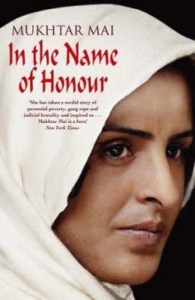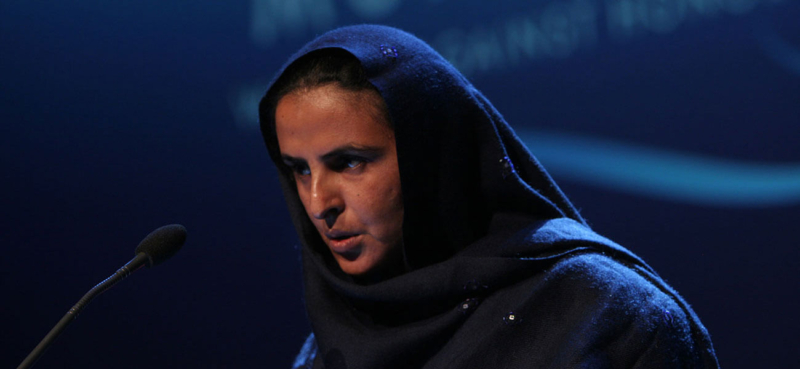Sadia Dehlvi has sent me this book review that was published by the Hindustan Times.
 Mukhtar Mai
Mukhtar Mai
In the Name of Honour: A memoir
With Marie-Therese Cuny
Mukhtar Mai’s story is about the transformation of an uneducated Pakistani peasant woman leading a simple life into a global symbol of the fight for gender justice. The story exposes the horrific honour killings rampant among the rural and tribal societies of Pakistan.
In these days of Islamophobia, a superficial misread would be to interpret this as yet another story validating the mythical, medieval Muslim monster. But the truth is that women continue to suffer, as shameful variations of the theme exist in caste, class and race-obsessed societies the world over.
Mukhtar’s tale is that of a woman who navigates an unchartered terrain for a lower-caste — seeking to punish her rapists in a primarily male, chauvinistic legal system. 
Mukhtar led a protected life in her father’s house in Meerwala village, teaching Quran to little girls. Her 12-year-old brother was wrongly accused of having an affair with a 20-something girl belonging to the upper-class Mastoi clan. On the night of June 22, 2002, the village council met and Mukhtar was taken to represent the family in the confrontation. Her life was to change forever.
Mukhtar spread a shawl at their feet, asking for forgiveness. But, despicably, the tribal court pronounced gang-rape as ‘honour justice’ for the Mastois. Mukhtar was shoved inside a nearby stable and gang-raped as the entire village of 300 people heard her scream. She was then paraded half-naked; the father threw her a shawl and walked her home. A humiliated Mukhtar contemplated suicide.
If she had, the saga would have been buried along with her remains under the rubble of Meerwala. Instead, it was the beginning of a new life for Mukhtar, one of courage and activism that the world would soon acknowledge and acclaim.
In the exhaustive process of seeking justice, the illiterate Mukhtar encountered local judges and policemen who obtained her thumb impressions on blank sheets with the assurance of acting in her best interests. Mukhtar later realised she had been signing her life away and felt crippled due to her illiteracy. Mukhtar’s case became internationalised, Pakistani women’s groups rallied together in support, resulting in Mukhtar being compensated financially by a Pakistan court.
With that money and other financial aid, Mukhtar sought meaning in her life by building the first school for boys and girls in her village. She journeyed to addressing international forums and becoming a source of strength for women facing similar violations of dignity. Mukhtar uses the strength of the experiences of personal misfortune to show them hope of a new dawn.
Mukhtar Mai’s fight is far from over. Accused of embarrassing Pakistan, she has faced house arrest by the State authorities. The possibility of Mukhtar’s rapists being acquitted on a re-trial ordered by the Federal Shariat Court is life-threatening.
The book is an easy-to-read, inspiring story that provides windows into the mindset and social realities of the rural and tribal areas of the sub-continent. Class and caste oppression remain our bitter truth and shame. It is the story of Dalit women in Khairlanji and the Gujar women in Meerwala. Phoolan Devi was gang-raped and paraded naked by upper-caste villagers. She took revenge by combating evil with evil. What makes Mukhtar Mai and her story unique is that evil is avenged with goodness, compassion and nobility. The Mukhtar Mai organisation runs women’s shelters, an ambulance service and elementary schools where Mukhtar herself is learning to read and write.
Sadia Dehlvi is a mediaperson and social activist.
Translated by Linda Coverdale
Virago Books



